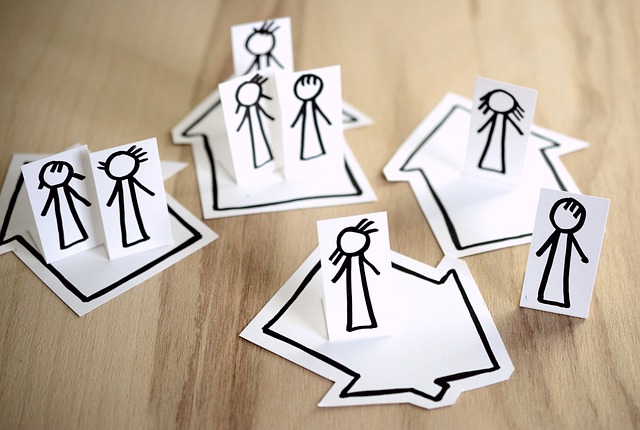In the tapestry of family life, each of us inadvertently takes on specific roles that influence our dynamics and interactions.
These roles, shaped by birth order, personality, parental expectations, and family needs, are as varied as they are fascinating.
Understanding these roles can offer profound insights into our behavior and relationships, both within and outside the family unit.
The Cast of Characters
- The Caregiver: Often stepping in to provide emotional support or physical care, the caregiver is the family’s unofficial nurse or therapist. They’re the ones you turn to when you need a shoulder to cry on or a band-aid for a scraped knee.
- The Achiever: This role is typically assumed by someone who’s driven to succeed, often excelling in academics, sports, or their career. Their achievements become a source of pride for the family, sometimes setting a standard that others feel pressured to meet.
- The Peacemaker: Averse to conflict, the peacemaker strives to smooth over disagreements and maintain harmony. They’re the mediators, often sacrificing their own needs or opinions to keep the peace.
- The Rebel: In every family narrative, there seems to be a rebel who challenges norms and expectations. Their actions can be a form of self-expression or a bid for attention, serving as a counterbalance to family conformity.
- The Joker: Lightening the mood with humor, the joker helps the family navigate through tough times. Their levity can be a coping mechanism, disguising deeper feelings or offering a momentary escape from stress.
- The Lost Child: Quiet and withdrawn, the lost child flies under the radar, often overlooked amidst the family’s busier or louder dynamics. Their silence can be a sanctuary or a cry for recognition.
The Impact of Our Roles
These roles, while seemingly rigid, are fluid and can evolve over time due to life changes, personal growth, or shifts in family structure.
However, they can also become cages, limiting our perception of who we are and what we can become. The achiever might fear failure, the peacemaker might suppress their desires, and the rebel might struggle with acceptance.
Stepping Out of the Script
Recognizing the roles we play is the first step toward growth. It allows us to question whether these roles truly fit our authentic selves or if they are simply comfortable masks we wear. Here are a few steps to start this journey of self-discovery:
- Reflect on Your Role: Consider how your family role has shaped your identity. Does it align with who you want to be?
- Communicate Your Needs: Openly discussing your feelings and aspirations with family members can pave the way for understanding and change.
- Set Boundaries: It’s essential to establish limits that protect your well-being and autonomy.
- Explore New Interests: Dabble in hobbies or activities outside your defined role to discover new facets of your personality.
- Seek Support: Sometimes, external guidance from a therapist can offer new perspectives and coping strategies.
Embracing Authenticity
Ultimately, the roles we play in our families are but one aspect of our complex selves. By acknowledging and understanding these roles, we can begin to live more authentically, embracing our full potential beyond the family script.
In doing so, we not only enrich our own lives but also enhance the dynamics of our families, fostering a environment where every member is seen, heard, and valued for who they truly are.
How do we determine what role we play
Reflecting on the role you play in your family dynamics can offer valuable insights into your relationships, behaviors, and the way you interact with the world.
Here are some questions to help you dive deeper into understanding your position in the family dynamics:
- How do family members typically describe me?
- Consider the adjectives or roles (like the peacemaker, black sheep, caretaker, etc.) your family uses to describe you. This can reveal a lot about how they see you and the role you’ve taken on.
- What responsibilities do I take on during family gatherings?
- Are you the organizer, the mediator, the entertainer, or the one who’s always in the background? Your role in these settings can reflect your broader family role.
- In times of crisis, what is my default response?
- Do you take charge, offer support, withdraw, or attempt to lighten the mood? Your reaction to stress or conflict can indicate your role in the family’s support system.
- What emotions do I most often feel in family interactions?
- Identifying if you feel stressed, protective, ignored, or maybe overburdened can give clues to your role and how it affects you.
- How do my goals and ambitions align with or differ from family expectations?
- This can reveal if you’re playing a role that’s true to yourself or one that’s been crafted by familial expectations.
- Do I feel like I can be myself with my family, or do I wear a ‘mask’?
- If you often hide your true feelings or alter your behavior, it might indicate you’re playing a role that doesn’t quite fit.
- Which family member do I relate to the most and why?
- Sometimes, the role you play is similar to another family member, which can show patterns within your family dynamics.
- What would happen if I stopped fulfilling my usual role?
- Imagining the consequences of not playing your role can highlight its significance in your family structure and how dependent your family dynamics are on it.
- What role do I play in conflict resolution within the family?
- Are you the mediator, the instigator, the resolver, or the one who avoids conflict at all costs? This role often mirrors how you manage emotions and relationships.
- How does my role within the family influence my relationships outside of it?
- Consider whether the dynamics in your family have shaped the way you interact in friendships, romantic relationships, or even at work.
By asking yourself these questions, you can begin to uncover the role you play in your family dynamics. Understanding this role can be the first step towards personal growth, better family interactions, and healthier relationships both inside and outside of your family circle.













